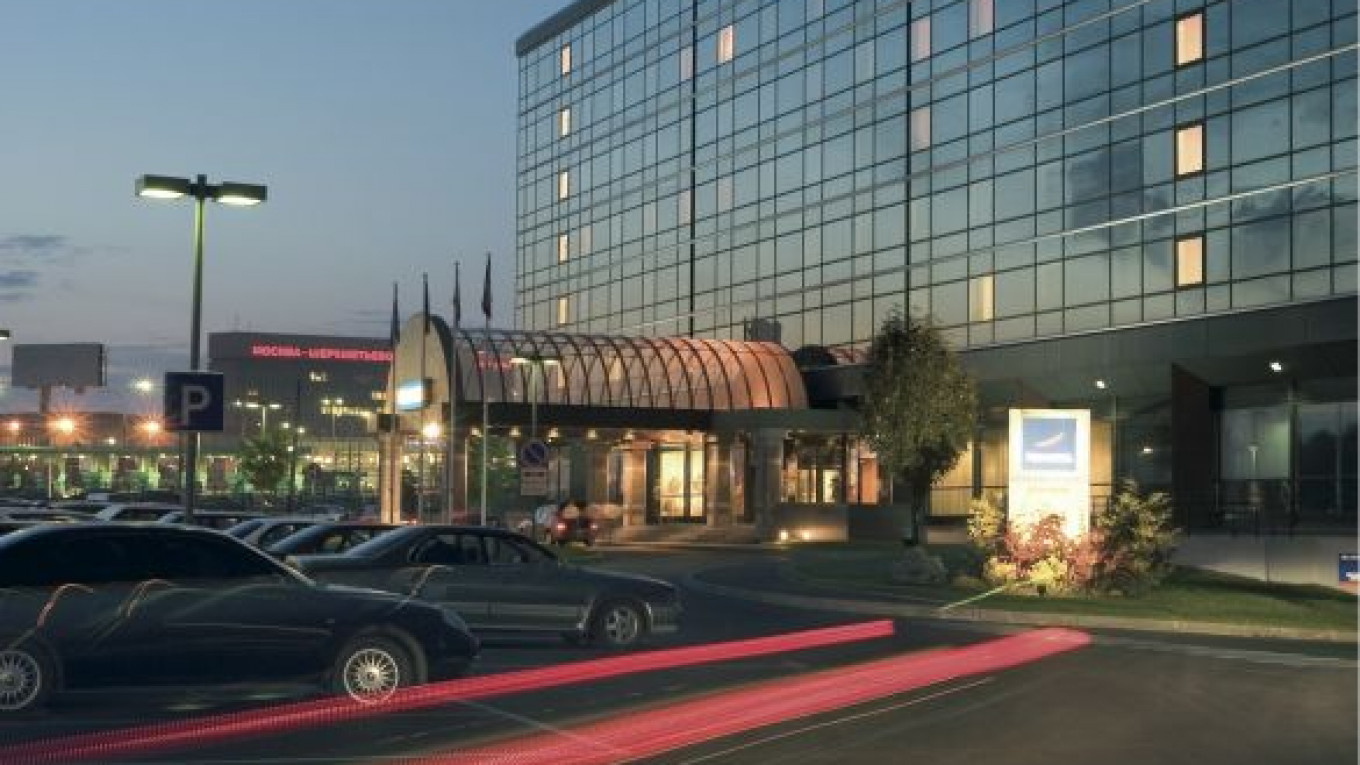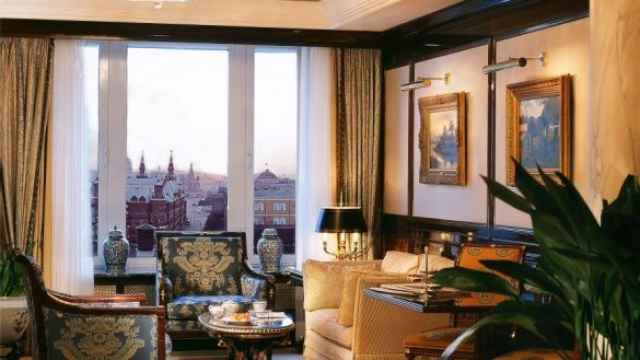Tourism industry website TripAdvisor recently ranked Moscow fourth on its list of "15 destinations on the rise," and the Moscow government will invest $11 million into developing tourism in the city this year.
The capital is also undergoing a massive beautification project to increase the total area of city parks fivefold in the next five years.
Hotels in Moscow are ready for more tourists, and as the luxury segment is reaching a saturation point, operators are now aiming to capture the mid-market. Mid-market openings this year include Azimut Danilovskaya and Mercure Arbat.
"Development of budget hotels in Moscow is limited due to a number of reasons, one of which is high cost of land. Nearly all hotels within the Third Transport Ring are upscale," said Alexey Korobkin, senior consultant at HVS Consulting & Valuation's Moscow office. "The 100 euro [$125] level is pretty much no man's land during high season. Only Soviet-era hotels offer such rates or lower."
"The room stock in luxury hotels in Moscow is starting to reach the level that is needed," said Alexis Delaroff, chief operating officer of Accor Russia, which has one of the most ambitious development programs of the international hotel chains operating in Russia.
Accor, which runs Novotel, Ibis and Mercure hotels in Moscow, has so far focused on the mid-market segment in the capital. It does plan to open a Sofitel luxury hotel in Moscow in the future, Delaroff said.
"The hotels built in the Soviet times are not meeting the expectations of travelers," he said.
Tourism Aid
According to the program "Development of the Recreation and Tourism Industry for 2012-2018," the city plans to increase its green areas — including parks, boulevards and squares — from the current total of 270 hectares to 1,350. Attractions in those areas, as well as along Moscow's waterways, will also be added. The program also calls for development of excursions around Moscow, promoting museums as well as marketing Moscow as a tourist destination.
The city will get at least 349 million rubles ($11 million) to develop and promote tourism, Sergei Shpilko, chairman of the city's tourism and hospitality committee, said at a conference last week. "The money that is being allocated for the development of tourism in Moscow, as well as the tools for its promotion, is sufficient," Shpilko said, RIA-Novosti reported.
Industry players, though, would like to see the city do more to promote tourism, including upping its funding of the tourism program and easing visa regulations.
"I don't see a direct link between our business and the number of parks, but it is a positive development for the city," said Mikhail Kolesnik, Marriott's director of development for the Russia/CIS/Eastern Europe area. "The city needs to establish a real market-oriented tourism program."
"When you're coming to Moscow from Europe, you're not coming to walk in a park," HVS's Korobkin said. "Let's be realistic, the number of tourists is not going to double over the next few years."
Moscow's attempts to become a tourist mecca are currently hindered by the difficulty and price of obtaining a visa, as well as the relatively high cost of plane tickets, according to Korobkin.
"Plane tickets for traveling within Russia are also high," he added.
Nonetheless, the number of tourists is steadily improving from the 2008-09 downturn. By the end of March, the number of international arrivals at Moscow's airports had grown 21 percent year on year, to 1.086 million, said Shpilko, the tourism and hospitality committee chairman. The average occupancy of Moscow's hotels as of April this year had increased 6 percent compared with the same period last year, to 73 percent, he said.
TripAdvisor, a popular tourism industry website, said Moscow is emerging as a top destination among travelers.
"The political, scientific, historical, architectural and business center of Russia, Moscow displays the country's contrasts at their most extreme," TripAdvisor said on its website.
Growing Hospitality
Accor has 13 hotels in the Commonwealth of Independent States, which includes Russia and other ex-Soviet nations. The firm plans to open three more hotels in the region this year and seven next year, said chief operating officer Delaroff. By 2016, Accor plans to have between 45 and 55 hotels in the region.
"We really strongly believe that sound development will be successful in Moscow, although the five-star luxury segment is starting to be full," Delaroff said.
Marriott has eight hotels in Moscow, including two Courtyards, a direct competitor of Accor's Novotel. The company plans to open its ninth hotel here by the end of next year, said Kolesnik, the development director.
"Much of the development of mid-market brands is concentrated in the regions," HVS's Korobkin said. "Moscow is the main business destination in Russia."
Other mid-market hotel operators are Rezidor with Park Inn; InterContinental with Holiday Inn; and Hilton with Hilton Garden Inn. Rezidor, Accor and Hilton are currently developing the most hotels in Russia, Korobkin said.
"It's not a copy-paste situation in the cities across Russia," Accor's Delaroff said. "They have similar patterns, but they are all different."
The Ibis in Kazan has almost 80 percent occupancy; the ones in Nizhny Novgorod and Omsk have about 70 percent occupancy, he noted.
Accor's Novotel at Sheremetyevo Airport has about 90 percent occupancy on a yearly basis; the Novotel near the Novoslobodskaya metro station has 75 percent occupancy, Delaroff said. The Ibis near the Paveletskaya metro station has 85 percent occupancy.
The average occupancy rates last year were 74 percent for upper-upscale, 66 for upscale and 68 for mid-market, according to Jones Lang LaSalle. Occupancy for the economy and budget classes were around 50 percent.
A Message from The Moscow Times:
Dear readers,
We are facing unprecedented challenges. Russia's Prosecutor General's Office has designated The Moscow Times as an "undesirable" organization, criminalizing our work and putting our staff at risk of prosecution. This follows our earlier unjust labeling as a "foreign agent."
These actions are direct attempts to silence independent journalism in Russia. The authorities claim our work "discredits the decisions of the Russian leadership." We see things differently: we strive to provide accurate, unbiased reporting on Russia.
We, the journalists of The Moscow Times, refuse to be silenced. But to continue our work, we need your help.
Your support, no matter how small, makes a world of difference. If you can, please support us monthly starting from just $2. It's quick to set up, and every contribution makes a significant impact.
By supporting The Moscow Times, you're defending open, independent journalism in the face of repression. Thank you for standing with us.
Remind me later.






